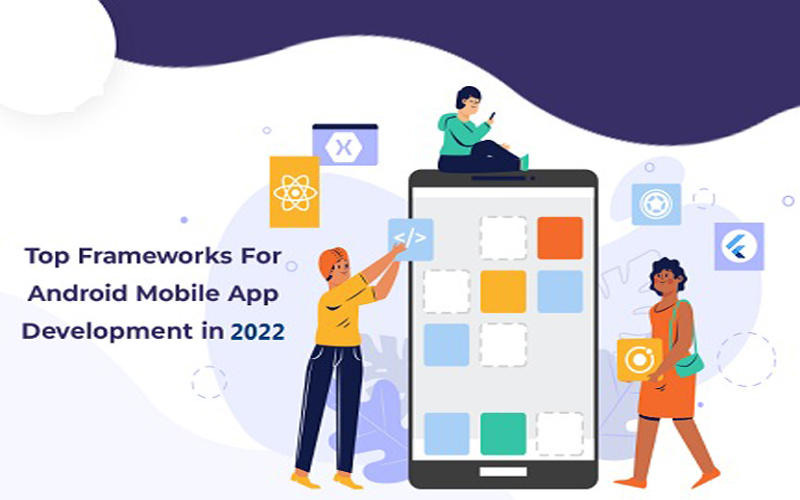Web development is the structure and Maintenance of sites; it refers to the work that goes on behind the scenes to ensure that a website looks great, loads quickly, and provides a smooth user experience. This is accomplished by using a variety of coding languages by web developers. The languages they use depend on the platforms they are working on and the tasks they are performing. Skills in web development are in high demand all over the world and well compensated, making development an excellent career choice. It is one of the simplest open more generously compensated fields as you need not bother with a conventional college degree to become qualified. The front-end , or side that users interact with, and the back-end, or side that servers interact with, are typically the two main subfields of web development.
Frontend and Backend Differences:
FRONTEND: - Front-end development focuses on a website user interface. Using tools, design expertise, and programming languages, front-end developers make sure that visitors can easily interact with and navigate websites. Website layouts, designs, and drop-down menus are all created by them. For the purpose of designing websites, front-end developers make use of computer programming languages like JavaScript, Hypertext Mark-up Language (HTML), and Cascading Style Sheets (CSS). Each language has its own specific function. The content and structure of the website are laid out in HTML, design features are added in CSS, and advanced interactive features are created in JavaScript. Front-end developers are less likely to be familiar with other programming languages like Ruby, PHP, or Python.
Skills for Frontend Developers:
1. HTML: - HTML is the most common programming language for implementing the general content and structure of a webpage.
2. CSS: - The colors, style, layout, and fonts of a webpage are created by front-end developers using CSS. To speed up the development process, these developers may make use of CSS pre-processors like SASS or LESS.
3. JavaScript: - Websites with interactive features like games, videos, audio, and front-end developers use JavaScript. To make websites run faster, JavaScript includes libraries with extensions and plugging.
4. Communication Skills: - Front-end developers benefit from having strong communication skills when working on web projects with clients and back-end developers. Clients without technical backgrounds may require developers to explain design issues.
5. Creativity: - Front-end developers with creative skills enhance websites' user-friendliness and aesthetic appeal. Beyond simply providing functionality, they contribute to a website’s aesthetic appeal and ease of use.
BACKEND: - Data is stored, arranged, and modified by back-end developers using tools like SQL Server and Oracle. Debugging back-end systems and applications, version control software, and expertise with PHP frameworks are frequently required by employers. To comprehend the objectives of each project, back-end developers collaborate with front-end developers, management, and business stakeholders. Most businesses expect back-end developers to hold four-year college educations in software engineering, programming, or web advancement. By gaining relevant work experience or attending boot camps, some back-end developers are able to find employment without completing four-year degrees. Some back-end developers are able to transition their experience into higher-paying careers as software engineers with additional training, education, or certifications. We will go over some of the skills that back-end developers typically have below.
Skills for Backend Developers:
1. Python: - Python Back-end developers write data structures and algorithms for websites using the Python programming language. Flask, Django, and Numpy are a few of the Python libraries and frameworks they use.
2. Java: - Applications are developed using Java, a programming language designed to be compatible with other platforms.
3. Ruby: - Ruby is a back-end programming language that is open-source and free. It allows back-end developers to quickly develop new applications. Because Ruby includes everything a website needs to function, full-stack developers frequently employ it as well. Ruby functions admirably for high-traffic sites.
4. Problem-Solving Skills: - Problem-Solving Back-end development frequently necessitates problem-solving abilities in order to resolve technical issues during website creation. Back-end systems and applications testing and debugging are examples of these responsibilities.
5. Communication Skills: - Communication Skills Effective project completion necessitates strong communication skills among back-end developers. Stakeholders who may lack technical expertise may require developers to explain technical web design issues.
Full Stack Development
Full-stack improvement incorporates the whole of an application, including back-end and front-end advancement. Full-stack developers work with both types of development rather than focusing on one. Full-stack developers are typically hired by businesses due to their comprehensive comprehension of the creation process and big-picture mindset. Front-end and back-end programming languages, such as JavaScript, Python, and CSS, are all familiar to full-stack developers. Experience with web architecture, algorithm development, databases, Git and GitHub and other common skills are also typical.
SQL Database
An information storage system that a website can access is called a database. The data set stores data, for example, usernames and passwords, to make a superior client experience. PHP is a server-side language for accessing the database, whereas My SQL is a common choice for a website database.
API
Technically, the term API refers to an interface for programming. The majority of large businesses have developed APIs for internal or customer use at some point. Application Programming Interfaces, or APIs, are components that are included in programming languages to make it simpler for programmers to develop intricate functionality. They remove more complicated code from your hands and substitute simpler syntax.





















 website development.png)











0 Comments
No comment